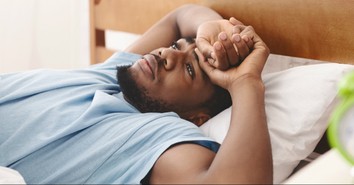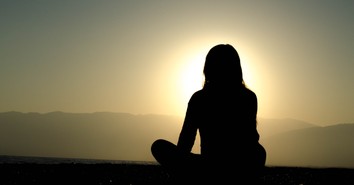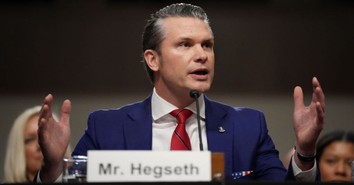Sleepless Children Often Become Sleepless Adults

The following is excerpted from an online article posted by HealthDay.
Young children who struggle with insomnia face a very high risk for more of the same as young adults, a new study warns.
Investigators found that 43% of children who suffer from insomnia between the ages of 5 and 12 continue to do so when they hit their 20s and 30s.
And that amounts to a near tripling of the risk that a sleep-deprived child will end up becoming a sleep-deprived adult, the researchers said.
That's "much higher than previously believed," said study lead author Julio Fernandez-Mendoza. He is an associate professor of psychiatry and behavioral health with the Sleep Research & Treatment Center at Penn State University College of Medicine.
In the study, he and his colleagues pointed out that childhood insomnia is not uncommon.
"About 20% to 25% of school-aged children have insomnia symptoms, understood as difficulties falling or staying asleep," Fernandez-Mendoza noted. Among adolescents, that figure rises to between 35% and 40%.
To explore the persistence of insomnia among kids as they grow up, the team tracked just over 500 children as they aged from as young as 5 to as old as 31.
During the first phase of the study — conducted between 2000 and 2005 — all the kids (and/or their parents) completed questionnaires regarding their sleep. Sleep habits were also tracked in real-time during sleepovers held in a laboratory setting.
Nearly one-quarter of the pre-adolescent kids were deemed to have insomnia.
Somewhere between 6 to 13 years later, most of the kids underwent the same assessments as teens, at an average age of 16. More than one-third (36%) of the adolescents were then found to be battling insomnia.
A third assessment phase was then conducted in the form of a follow-up sleep survey launched between 2018 and 2021. At that time, the average age of the study participants was 24.
The team found that about 27% of pre-adolescent insomniacs had become healthy sleepers as adults. About 11% of those who had still struggled with sleep as adolescents also managed to leave insomnia behind by the time they'd reached their 20s and early 30s.
But nearly 19% of those with a history of sleep trouble as children had continued to experience intermittent insomnia as adolescents and adults, while more than four in 10 continued to be plagued by persistent sleep deprivation.
The findings were published online in the journal Pediatrics.
Source: HealthDay
https://consumer.healthday.com/2-17-sleepless-children-often-become-sleepless-adults-study-2656599774.html
Originally published February 17, 2022.





